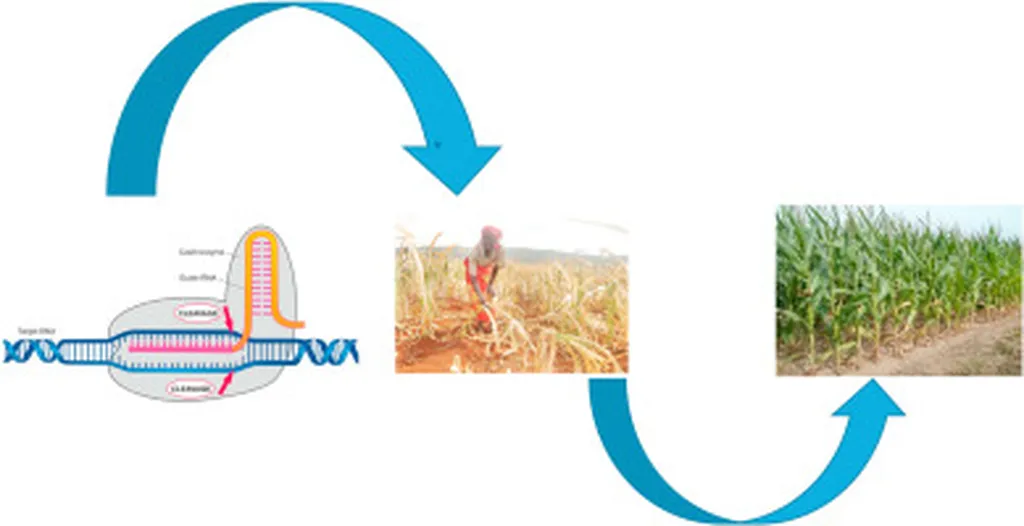In the ever-evolving landscape of agricultural technology, a recent study published in the journal *Frontiers in Plant Science* (translated from *Frontiers in Genetics*) is making waves. The research, led by Surya Krishna Sakthivel, delves into the world of vegetatively propagated polyploid crops—staples like potato, strawberry, sugarcane, and banana—and explores how advanced genetic techniques could revolutionize their resilience and quality in the face of climate change.
Polyploid crops, which have multiple sets of chromosomes, are notoriously challenging to improve through traditional breeding methods. Their complex genomes and clonal propagation nature make it difficult to introduce desirable traits such as higher yield, better quality, and resistance to environmental stresses. This is where transgenics and genome editing come into play. These cutting-edge technologies offer promising solutions to enhance the traits that matter most to farmers and consumers alike.
“Transgenics and genome editing provide us with the tools to precisely target and modify genes that confer climate resilience and quality traits in polyploid crops,” said Sakthivel. “However, there are still significant challenges to overcome, such as developing genotype-independent transformation protocols and ensuring the precision of gene editing in complex genomes.”
The study highlights recent advancements in these technologies, focusing on how they can be applied to improve potato, strawberry, banana, and sugarcane. For instance, genome editing tools like CRISPR-Cas9 allow scientists to make targeted changes to the DNA of these crops, potentially leading to higher yields and better resistance to pests and diseases. Transgenics, on the other hand, involve introducing foreign genes into the crop’s genome to confer new traits.
Despite these advancements, the path to commercial success is fraught with challenges. Regulatory hurdles and public acceptance remain significant barriers. Sakthivel emphasizes the need for efficient, transgene-free genome-editing platforms to navigate these hurdles. “Employing transgene-free editing can help accelerate breeding programs, even in heterozygous backgrounds, and make the process more acceptable to regulators and consumers,” he explained.
The potential commercial impacts of this research are substantial. For the energy sector, crops like sugarcane, which is a key source of biofuel, could see significant improvements in yield and resilience. This could lead to more sustainable and efficient biofuel production, contributing to a greener energy future.
As we look to the future, the advancements in genetic engineering for polyploid crops hold tremendous promise. They offer a pathway to ensuring food security and agricultural sustainability in the face of climate change. The research not only sheds light on the current state of the field but also points to the exciting possibilities that lie ahead. With continued innovation and collaboration, we may soon see these technologies transform the way we grow and consume our most important crops.

